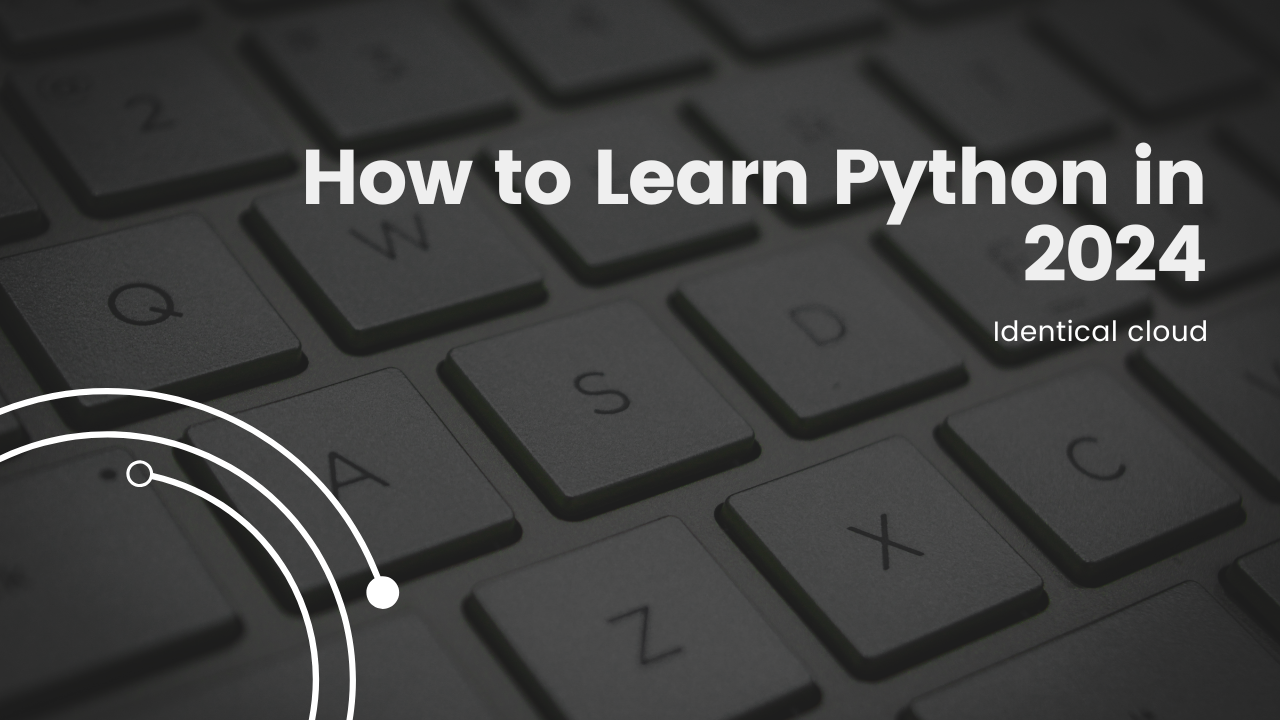
How to Learn Python in 2024
How to Learn Python in 2024
Python’s popularity continues to soar in 2024! Whether you’re a complete beginner or looking to level up your skills, this comprehensive guide will equip you with the resources and strategies to master this versatile programming language.
Why Python?
Python remains a top choice for various reasons:
- Beginner-friendly: Its clear syntax and focus on readability make it easier to learn compared to other languages.
- Versatile: Python can be used for web development, data analysis, machine learning, automation, and more.
- Large and supportive community: A vast online community offers tutorials, forums, and libraries to aid your learning journey.
Getting Started:
1. Choose Your Learning Style:
- Interactive platforms: Platforms like Data Camp, codecademy, and learnpython offer interactive tutorials, gamified learning, and immediate feedback.
- Structured courses: Online courses by platforms like udemy, pluralsight, or Coursera provide structured learning with video lectures, quizzes, and projects.
- Books and tutorials: Classic resources like “Automate the Boring Stuff with Python” by Al Sweigart or official Python documentation offer in-depth explanations at your own pace.
2. Install Python: Head over to https://www.python.org/downloads/ and download the latest Python version for your operating system. Installation is usually straightforward.
Practice Makes Perfect:
- Start with the basics: Grasp fundamental concepts like variables, data types, operators, control flow, and functions.
- Solve coding challenges: Websites like HackerRank or LeetCode offer coding exercises of varying difficulty to test your understanding and build problem-solving skills.
- Work on small projects: Once comfortable with the basics, find beginner-friendly project ideas online. This could be a simple calculator, a text-based game, or a web scraper.
Taking it Further:
- Libraries are Your Friends: Python boasts a vast ecosystem of libraries for various tasks. Explore popular ones like NumPy for scientific computing, Pandas for data analysis, Matplotlib for data visualization, and Django or Flask for web development.
- Stay Updated: The tech landscape evolves rapidly. Follow Python blogs, attend meetups, or join online communities to stay updated with the latest trends, libraries, and best practices.
- Contribute to Open Source: Consider contributing to open-source Python projects. This is a fantastic way to gain real-world experience, learn from experienced developers, and build your coding portfolio.
2024 Specifics:
- Focus on Automation: Python’s automation capabilities are highly sought-after. Explore libraries like Selenium for web automation or explore robotic process automation (RPA) tools built on Python.
- Machine Learning with Python: Machine learning continues to be a hot field. Utilize libraries like TensorFlow or PyTorch to delve into this exciting domain.
- Data Science with Python: The demand for data scientists remains high. Master data analysis and visualization libraries like Pandas, NumPy, and Matplotlib to unlock valuable insights from data.
Learning to code takes time and dedication. Don’t get discouraged if you hit roadblocks. Embrace the learning process, celebrate your progress, and leverage the vast Python community for support.
FAQs: Conquering the Python Path in 2024
General:
Why should I learn Python?
Python is beginner-friendly, versatile (web dev, data science, etc.), and backed by a large, supportive community.
I have no coding experience. Can I still learn Python?
Absolutely! Python’s clear syntax makes it a great starting point for beginners.
How long will it take to learn Python?
The timeframe depends on your learning pace and goals. Basic concepts can be grasped in weeks, while mastery takes longer dedication.
Learning Resources:
What are the best ways to learn Python?
Explore interactive platforms, structured online courses, or classic books and tutorials, depending on your learning style.
Are there any free resources available?
Yes! Many websites offer free tutorials, coding challenges, and even introductory courses.
What if I get stuck on a coding problem?
Don’t fret! Utilize online communities and forums to ask questions and get help from experienced Python programmers.
